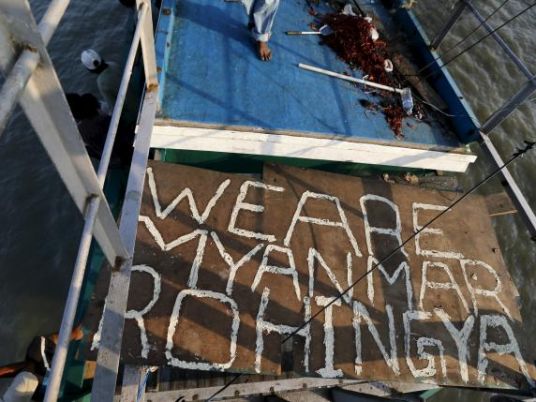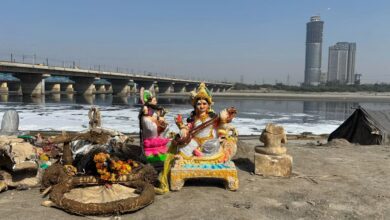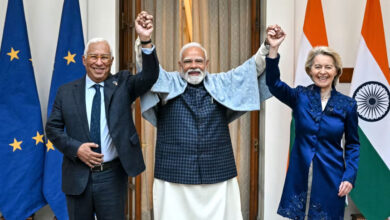
India’s home ministry said on Monday it would confidentially share intelligence information with the Supreme Court showing Rohingya links with Pakistan-based militants, in a bid to get legal clearance for plans to deport 40,000 Rohingya Muslims.
The Supreme Court is hearing an appeal lodged on behalf of Rohingya against the deportation plan proposed by Prime Minister Narendra Modi’s Hindu nationalist government.
The ministry is arguing that the hardline stance was justified by the national security threat posed by illegal immigrant Rohingya, hundreds of thousands of whom have fled from Myanmar to Bangladesh, from where many have crossed into India.
“It is submitted that continuance of Rohingyas’ illegal immigration into India and their continued stay in India, apart from being absolutely illegal, is found to be having serious national security ramifications and has serious security threats,” the ministry told the court in an affidavit.
It said the illegal influx of large numbers of Rohingya into India began four to five years ago, long before an exodus that saw more than 400,000 Rohingya flee to Bangladesh since Aug. 25 to escape a Myanmar military counter-insurgency offensive that the United Nations has called “ethnic cleansing”.
The home ministry went on to say the government had reports from security agencies and other authentic sources “indicating linkages of some of the unauthorized Rohingya immigrants with Pakistan-based terror organizations and similar organizations operating in other countries.”
The affidavit said there was also information on Rohingya involvement in plots by Islamic State and other “extremist groups” to ignite communal and sectarian violence in India.
Senior home ministry official Mukesh Mittal said the Indian government would privately show the court material gathered from “sensitive investigations” to substantiate the claims in its affidavit.
The court will next hear the matter on Oct. 3.
Lawyer Prashant Bhushan, who filed the plea on behalf of two Rohingya men, will file a rejoinder to the government’s affidavit, his office told Reuters.
Rohingya in India voiced worries that they were being unfairly tainted by the allegations and sought more understanding for their plight.
“We feel helpless and hopeless,” said Rohingya youth leader Ali Johar, who came to India in 2012 and lives with his family in a Delhi settlement.
“The world’s largest democracy has given us shelter but they should handle this situation more empathetically.”
Modi’s government has been criticized by activists for not speaking out against Myanmar’s recent military offensive against Rohingya insurgents, and right-wing groups in India have begun vilifying Rohingya living there.
The Rohingya are denied citizenship in Buddhist-majority Myanmar and regarded as illegal immigrants, despite claiming roots that date back centuries. More than 800,000 Rohingya currently live in Bangladesh.




